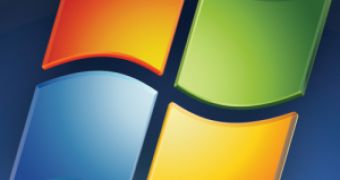Microsoft is exploring the possibility of delivering Windows 8 exclusively for 64-bit. As far as the next iteration of Windows is concerned, the Redmond company already confirmed that Windows 7 would come in both x86 and x64 flavors. While no word is still out on whether Windows 8 will feature both 32-bit and 64-bit versions, indications are pointing to a scenario where the software giant would abandon the x86 version of the operating system in favor of the x64 one.
In mid-August 2008, Christopher Flores, director Windows Communications, revealed that, driven by the increasing prevalence of 64-bit CPU architectures, 64-bit Windows managed to break into the mainstream. At that time, Microsoft was detecting what the company referred to as a dramatic increase in the volume of 64-bit machines connecting to Windows Update. The explanation offered by Microsoft for the explosion in the adoption of 64-bit Windows involved the shift of Original Equipment Manufacturers to 64-bit machines, which could take advantage of over 4 GB of RAM, as system memory prices dropped.
Microsoft is now testing the waters to get a feel of just how much application developers are keeping up the pace with the hardware evolution. In this context, the Redmond giant is asking for the developers' feedback via a survey designed to assess "How should 64- and 32-bit apps work on future Operating Systems?” according to Karin Meier, Microsoft program manager, but which clearly states on the starting page that “the purpose of this survey is to ask about your needs in developing 64bit software.”
"The Windows engineering teams are planning how 64-bit and 32-bit applications will work in future versions of the operating system, as 64-bit PCs become increasingly prevalent. They have created a survey that will enable customers to tell Microsoft what they feel the needs and priorities are for improvements in how 64-bit and 32-bit applications should function. They would really like to have your feedback, so if you’re interested, consider filling out the survey. It contains 12 questions, and will take about 10 minutes to complete," Meier said.
Via the survey Microsoft asks about the “degree of 64-bit support does the primary application you work on have today? [With the following alternatives for answers:] we ship a native 64bit version; we verify a 32bit version works well on 64bit operating systems; our application is 32bit only and will NOT run on 64bit operating systems; our application is 32bit and 64bit agnostic, and doesn't require special versions for 32bit or 64bit operating systems; our application is mostly 32bit with some 64bit components; and don't know.”
However, more importantly, Microsoft is inquiring about what developers are planning to do about 64-bit support with their applications in the future. In this regard, the company is interested in a timetable, just 2 years following the reported release of Windows 7. “What degree of 64-bit support do you want the primary application you work on to have by 2011?” the company asks.(emphasis added)
When it comes down to 64-bit application support by 2011, developers can choose from these answers: “ship a native 64bit version; ship both a native 32bit AND a 64bit version; verify a 32bit version works well on 64bit operating systems; application will remain 32bit only and will NOT run on 64bit operating systems; our application is 32bit and 64bit agnostic, and doesn't require special versions for 32bit or 64bit operating systems; our application will be mostly 32bit with some 64bit components; and don't know.”
In all fairness, there is no mentioning of Windows 8 in the survey. However, 2011 automatically points to the successor of Windows 7. In the context in which Windows 7 would be shipped by the end of 2009, Microsoft could deliver Windows 8, in a two to three year timeframe, namely 2011, 2012. With the hardware manufacturers and OEMs already showing strong support for 64-bit, Microsoft needs only the majority of software developers to tailor their applications for x64, in order to produce an exclusively 64-bit Windows 8.
Moreover, while Windows 7 client might be delivered both as 32-bit and 64-bit, the fact is that Windows 7 Server will only be 64-bit. Microsoft confirmed that Windows Server 2008 would be the last Windows Server operating system with 32-bit support. As 64-bit architectures become mainstream, the same strategy could be applied to the Windows client, starting with Windows 8.

 14 DAY TRIAL //
14 DAY TRIAL //